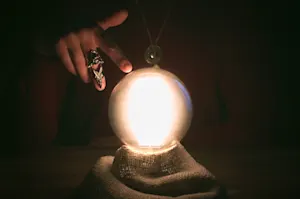What Makes This Word Tick
Hypnopedia may sound futuristic, but it’s a concept many of us have pondered: learning in your sleep. This word combines "hypno," related to sleep, and "pedia," from Greek pais, meaning child or education. Imagine absorbing a new language or mastering the ukulele while catching those Zs!
If Hypnopedia Were a Person…
Imagine Hypnopedia as a charismatic night owl, always wearing comfy pajamas and a sleep mask as a cheeky accessory. They’re the type who’d hold court over a midnight snack, regaling you with stories of dreamlike mental feats while urging you to just rest and let the subconscious do its magic.
How This Word Has Changed Over Time
Originally sci-fi territory, particularly in Aldous Huxley’s Brave New World, hypnopedia was once a far-off dream. With the advent of audio technology, it became a bit of a self-help buzzword, but one that resides mostly in the realm of optimism rather than documented effectiveness.
Old Sayings and Proverbs That Use Hypnopedia
While there aren’t ancient proverbs specific to hypnopedia, the concept echoes the idea of “sleeping on it” to resolve complex problems or make decisions—wisdom much older than recorded history.
Surprising Facts About Hypnopedia
Hypnopedia might appeal to those late-night students cramming for exams, but studies show it's not quite a substitute for traditional learning. Your brain may consolidate knowledge during sleep, but acquiring new skills this way remains elusive.
Out and About With This Word
Hypnopedia has made its rounds in educational technology discussions, with companies exploring devices to boost this dream-learning. It’s also a staple of quirky diner talks between sci-fi enthusiasts who love pondering what tomorrow’s learning might bring.
Pop Culture Moments Where Hypnopedia Was Used
The most famous depiction comes from Brave New World, where hypnopedia is a tool of control rather than empowerment. It pops up in TV and film, often as the herald of a dystopian future rather than an academic panacea.
The Word in Literature
While Huxley coined it, hypnopedia has danced around many speculative fiction tales. It fits snugly into themes of utopia and dystopia, exploring the boundaries between technological advancement and ethical considerations.
Moments in History with Hypnopedia
Though not historical per se, hypnopedia enchants when the mid-20th century saw interest in subliminal learning, and invention spikes during the tech rush in the late 20th century mirrored the curiosity built into Huxley’s narrative.
This Word Around the World
The allure of hypnopedia transcends borders. While it’s mostly known in English-speaking cultures, the global curiosity for “learning while you sleep” shows up in various programs and prototypes worldwide, though often language barriers stand as learning hurdles.
Where Does It Come From?
The concept of hypnopedia, rooted in Huxley’s 1932 novel, extended its roots into the subconscious, forever linked to the tantalizing idea of educational leaps during REM sleep cycles.
How People Misuse This Word
Some envision hypnopedia as a quick-fix educational method, akin to osmosis. Sadly, it’s reported more as an ambition for tomorrow than a foolproof technique for today’s curricula.
Words It’s Often Confused With
Hypnosis: While both deal with altered states, hypnosis is a focused trance often for therapeutic purposes.
Somniloquy: Sleep talking, partially overlapping since hypnopedia depends on verbal cues during sleep.
Additional Synonyms and Antonyms
Synonyms: Subliminal learning, sleep-learning
Antonyms: Wakeful study, traditional education
Want to Try It Out in a Sentence?
"While the appeal of hypnopedia is undeniable, most students still find it more productive to hit the books than to rely on a bedtime playlist to pass their exams."
















